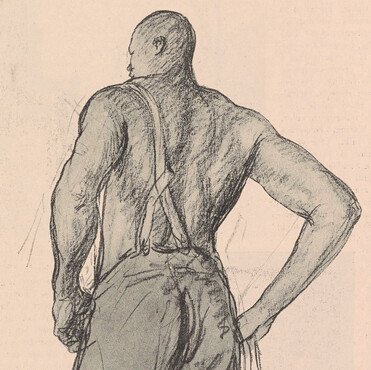We are pleased to announce that the Beinecke Rare Book and Manuscript Library’s highlights of newly digitized material have resumed. Library users continue to express interest in medical history, leading to the digitization of fragments of medical encyclopedias, alchemical texts, and instruction on the “treatment of eye sores.” Yale students closing the books, against all odds, on this semester may enjoy perusing Roger Ewing’s 92-page notebook covering one week of Yale coursework from December 1784. Those interested in histories of conflict can now view the diary of British naval officer Samuel Eborall or a military map of Haitan Dao; those interested in histories of collaborative play can view exquisite photographs of Muriel Draper, Max Ewing, Tom Mabry, and Paul Robeson. If anyone has ever wondered about the purpose of cartoons, our Digital Library now provides two data points: cartoons can tell an ethnographic history of one Civilian Conservation Corps company operating in Washington State under FDR’s New Deal, and cartoons can show the mutability of the body which easily becomes male, female, and mermaid depending on how one folds paper.
Beinecke’s copy of Survey Graphic vol. 6 no. 6 has been digitized in full. Black intellectuals and artists contributed to this special edition of the magazine to describe life in Harlem and prescribe a shared political project. Labor and gender relations, patterns of worship, musical cultures, archaeologies of Black history, and Black portraiture are here described and exemplified. Manuscript annotations only present in this copy expand on printed text. Langston Hughes annotated his poems to note that “This was, I think, the first full page of my work to appear in any magazine” and Alain Locke inscribed, 16 years after publication, a personal reminiscence of a Literary Guild dinner with Paul Kellogg and William Edward Burghardt Du Bois. Survey Graphic joins the Beinecke’s robust collection of Harlem Renaissance materials open for public perusal on the Digital Library.
